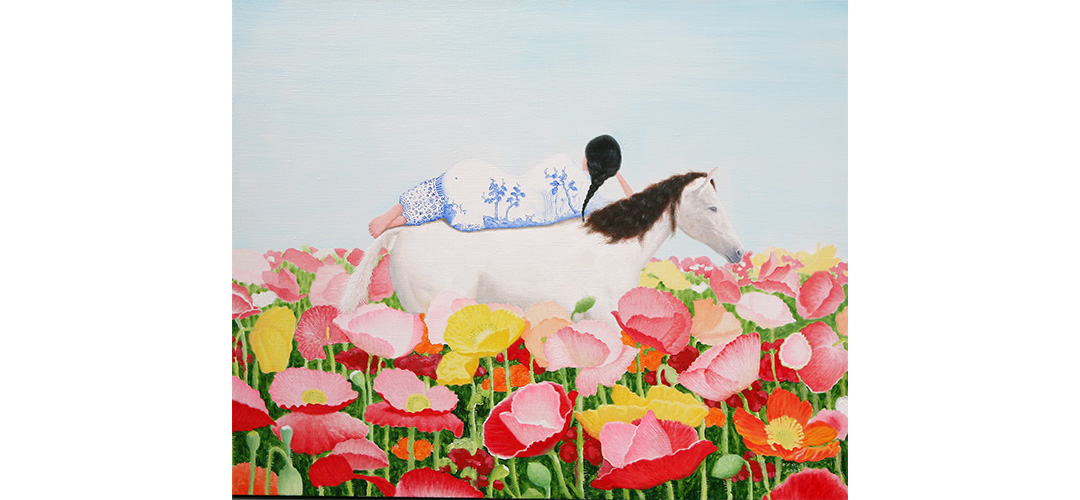Woolim LEE
A walk
Oil on Canvas
91 × 73 cm
2023
Woolim Lee was born in 1972 in Sacheon, Korea. He studied in Yeungnam University, Gyeongsan, Korea (BFA, MFA). He has had solo exhibitions 31 times since 2002, and his works have been collected at Seoul Metropolitan Museum of Art, National Museum of Contemporary Art, Kumho Museum, Seoul Municipal Boramae Hospital, Severance Hospital, Catholic Hospital, Hana Bank, Korea YAKULT, 93 Museum, Catholic University Hospital, and WHITE BLOCK Art Center. He has 21st KUMHO Young Artist Selection awards and participated in ACC Asian Creative Studio and Daegu Art Factory residencies.
The paintings construct the bridge that connects dream and reality. If we could define the artist's world as such, we will eventually be able to discuss happiness since his works let us restore our rights of being able to dream. Woolim Lee’s works have a transcending effect which relieves us from the psychological and the physical pain of reality by guiding us back to reality as well as the world beyond, that is, the dreamy and fantastic world. The special devices in his works, for instance, green meadows like soft cushions, and the surface of calm waters, invokes the serenity that viewers associate with this imagery when they look. This is supported by the fact that most of his recent works makes use of horizontal composition, which brings a sense of happiness based on a mild psychological state. It is natural for people to feel happiness by looking at an endless poppy flower field or yellow rape flower field, but not when looking at the roaring sea. His works come across as unrealistic and dreamy because of some special devices he has put on the canvas such as, unrealistic facial color of white or yellow, and actions like flying across the sky or even lying on the water. As a matter of fact, it is almost impossible to witness these scenes in reality. If they exist, it is caused by the actor’s makeup or a magic trick.
It is no wonder then, to wish for communication due to the interruption. The artist paradoxically depicts the state of fragmented psychological isolation of people, like feelings of loneliness in a crowd, with extravagant colors. And it seems to restore the right of being able to dream, as the bridge that connects the dream to reality. If we can fully understand his works, we will finally be able to discuss happiness.

